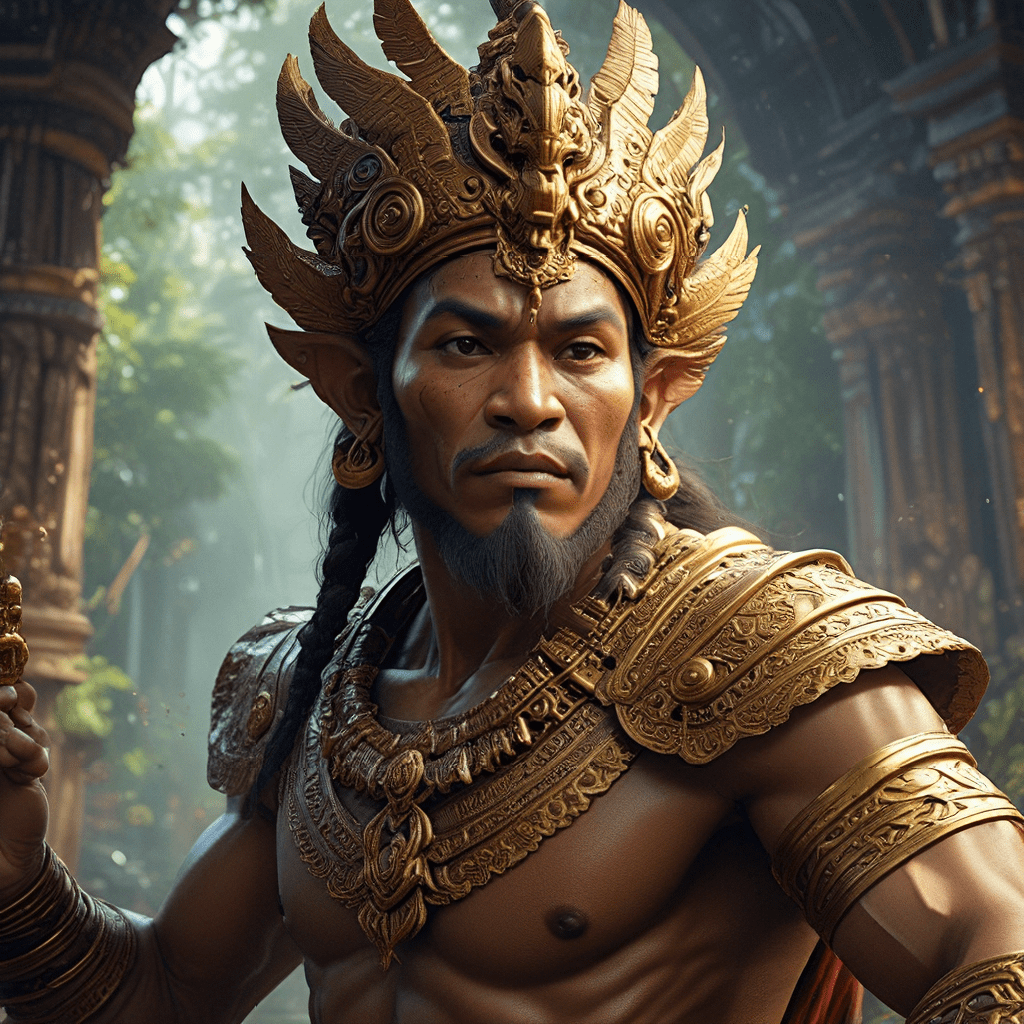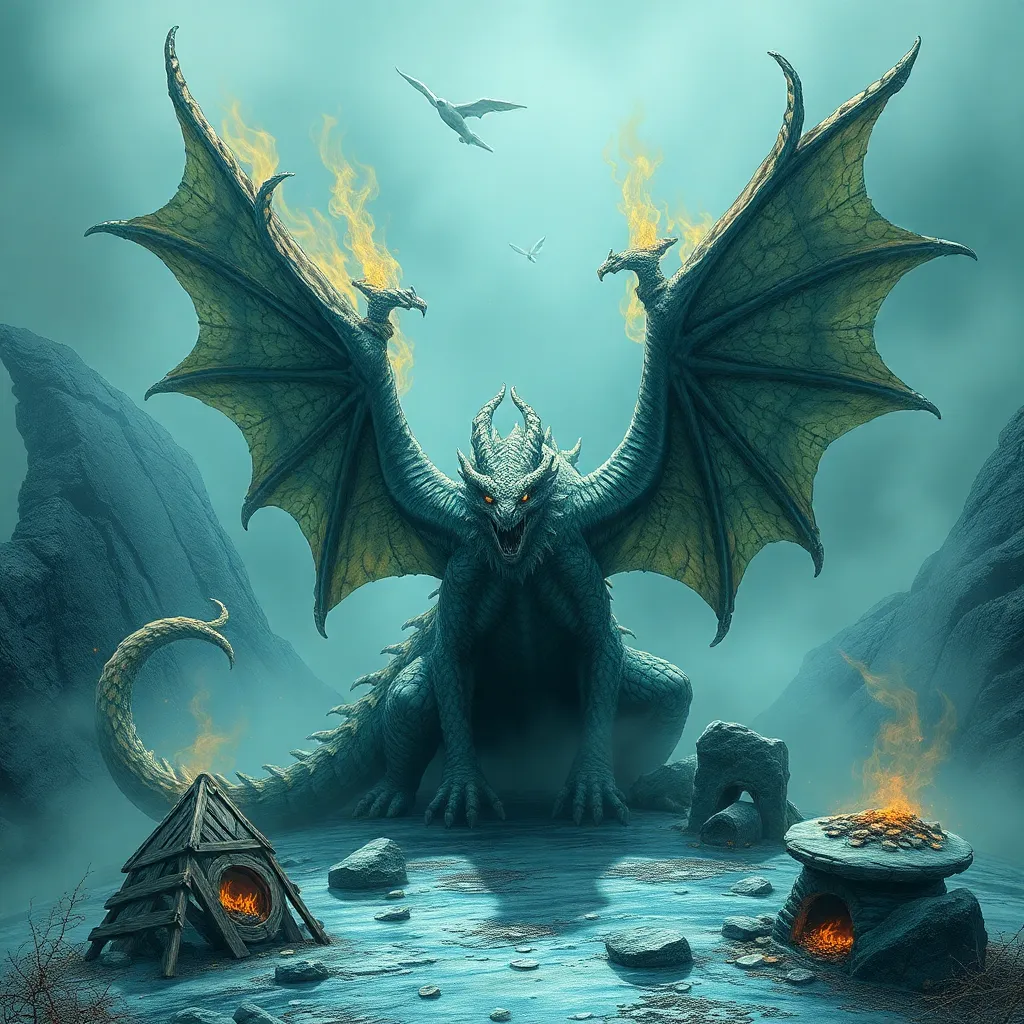The Mythical Powers of Indonesian Healers and Shamans: An Exploration
1. The Indonesian Archipelago: A Tapestry of Myth and Magic
Indonesia is a vast country with a rich and vibrant culture. It is made up of thousands of islands, each with its own unique traditions and beliefs. This diversity is reflected in the country's rich mythology and folklore.
The Indonesian archipelago has a diverse cultural landscape where myths and magic have played a crucial role in shaping beliefs and practices for centuries. From the ancient animistic traditions of indigenous tribes to the influence of Hinduism, Buddhism, and Islam, Indonesia's cultural tapestry is interwoven with stories of spirits, gods, and supernatural beings. These beliefs have permeated everyday life, influencing everything from social customs to healing practices.
The origins of animism and spiritual beliefs in Indonesian culture are deeply rooted in the natural world. The indigenous people of Indonesia have long held a reverence for the forces of nature and believed that spirits inhabited trees, mountains, rivers, and even animals. This belief system, known as animism, emphasizes the interconnectedness of all living things and the spiritual world.
2. The Shaman as a Bridge Between Worlds
In Indonesian culture, the shaman is a revered figure who acts as a bridge between the physical world and the spirit realm. They are believed to have special powers and abilities that allow them to communicate with spirits, heal illnesses, and influence the course of events.
Shamans are often seen as spiritual intermediaries, possessing the unique ability to access and harness the power of the spirit world. They are believed to have a strong connection to the natural world, understanding its rhythms and the hidden energies that flow through it. This connection allows them to tap into a wellspring of knowledge and wisdom beyond the realm of everyday understanding.
The role of the shaman extends beyond simply communicating with the spirit world. They are also responsible for healing, divination, and conducting rituals.
3. The Mythical Beings of Indonesian Folklore
Indonesian folklore is teeming with mythical creatures and deities that play significant roles in the lives of the people. These beings are often seen as powerful and influential, shaping the course of events and influencing the destiny of individuals and communities.
From playful spirits to fearsome demons, the creatures of Indonesian folklore are as diverse as the islands themselves. There are the protective spirits of the forest, the mischievous water spirits, and the powerful deities who rule over the heavens and the underworld.
Some of the most well-known mythical beings in Indonesia include:
- The spirits of nature: These spirits are believed to inhabit the forests, mountains, rivers, and oceans.
- The demons: These creatures are often associated with darkness, evil, and misfortune.
- The gods and goddesses: These deities represent various aspects of nature, the human condition, and the spiritual realm.
4. The Healers: Masters of the Mystical Arts
Healers are an integral part of Indonesian society, playing a crucial role in maintaining health and well-being. They are believed to possess special skills and knowledge that allow them to treat illness, relieve suffering, and restore balance to the body and spirit.
Healers utilize a combination of traditional methods and mystical arts to achieve their goals. They often combine the use of herbs, rituals, and spiritual practices to heal both physical and spiritual ailments. Herbal medicine is deeply embedded in Indonesian culture, with healers possessing vast knowledge of the medicinal properties of plants.
5. The Power of Ritual and Ceremony
Rituals and ceremonies are an essential part of Indonesian culture, playing a significant role in connecting individuals and communities to the spiritual world. They are viewed as powerful tools for healing, protection, and achieving spiritual enlightenment.
Rituals are often performed to honor deities, appease spirits, ward off evil, or seek guidance and blessings. They involve specific actions, chants, offerings, and other practices that are believed to have a profound effect on the spiritual realm and, consequently, on human affairs.
Ceremonies are more elaborate events that often mark important life transitions or commemorate significant events. They are often accompanied by music, dance, storytelling, and feasting. These ceremonies serve to strengthen community bonds, reinforce cultural values, and connect people to their ancestors and their spiritual heritage.
6. The Influence of Animism and Totemism
Throughout Indonesia, beliefs in the spirit world and its connections to the natural world are deeply ingrained. This belief system, known as animism, is present in many indigenous cultures across the archipelago. Animism sees spirits residing in trees, mountains, rivers, and even animals, making these aspects of nature sacred and worthy of respect.
Totemism, another significant belief, connects individuals and groups to specific animals, plants, or natural phenomena. These totems are seen as protectors, guides, and sources of strength and wisdom. Healers often use their knowledge of totems in healing rituals, seeking to harness the power of these spiritual guardians for the benefit of their patients.
Ancestor worship is also a significant aspect of Indonesian culture. Many Indonesians believe that their ancestors continue to influence their lives and play a vital role in their well-being. They perform rituals to honor their ancestors and seek their guidance and protection.
7. Theories on the Origins of Shamanistic Practices
The origins of shamanistic practices in Indonesia are a complex subject, intertwining indigenous beliefs, historical influences, and cultural adaptations. It's believed that animistic beliefs, deeply rooted in the indigenous cultures of the archipelago, laid the foundation for shamanism.
Through centuries, these practices evolved influenced by the arrival of Hinduism, Buddhism, and later, Islam. These religions, with their own spiritual teachings and practices, integrated with existing beliefs, creating a rich tapestry of spiritual traditions.
Shamanic practices found a fertile ground in Indonesia's diverse landscape and its respect for nature. The reverence for spirits and the belief in the interconnectedness of the natural and spiritual worlds created a framework where shamans could flourish.
8. Shamanism in Modern Indonesia
Shamanistic practices continue to play a significant role in modern Indonesia, particularly in rural areas and among certain indigenous communities. While modern medicine has gained prominence, traditional healing methods are still widely practiced and respected.
Shamanism in modern Indonesia represents a balance between respecting traditional beliefs and adapting to the changing world. Many healers integrate modern medical knowledge into their practices, combining the best of both worlds.
9. The Importance of Preserving Traditional Practices
The preservation of Indonesia's shamanistic practices is important for several reasons. Firstly, it safeguards a vital part of the country's cultural heritage, representing centuries of wisdom and knowledge about healing, nature, and the spiritual realm.
Secondly, these practices provide valuable insights into the human connection to the natural world and the importance of maintaining a harmonious relationship with it.
Finally, preserving shamanistic practices helps to maintain cultural diversity and identity, ensuring that these rich traditions continue to flourish for future generations.
10. Respect and Understanding
It's crucial to approach Indonesian shamanism with respect and understanding. These practices are deeply embedded in the country's cultural fabric and should be treated with sensitivity. While some aspects of shamanism might seem unfamiliar or even mystical, it's essential to remember that these practices are a vital part of Indonesian life and culture.
FAQ
Q: Are Indonesian shamans real?
A: While the concept of shamanism might seem mystical, many Indonesians firmly believe in the power of their healers and shamans. These practices have been passed down through generations and are deeply integrated into the country's cultural fabric.
Q: How can I experience shamanism in Indonesia?
A: If you're interested in experiencing shamanistic practices in Indonesia, it's best to consult with local experts and respect local customs. Some communities may be more open to sharing their traditions with outsiders, while others may value privacy and confidentiality.
Q: Are shamanistic practices dangerous?
A: Shamanistic practices in Indonesia are generally considered safe, as they are guided by centuries of tradition and knowledge. However, it's always wise to approach any unfamiliar spiritual practice with caution and seek guidance from knowledgeable individuals.




